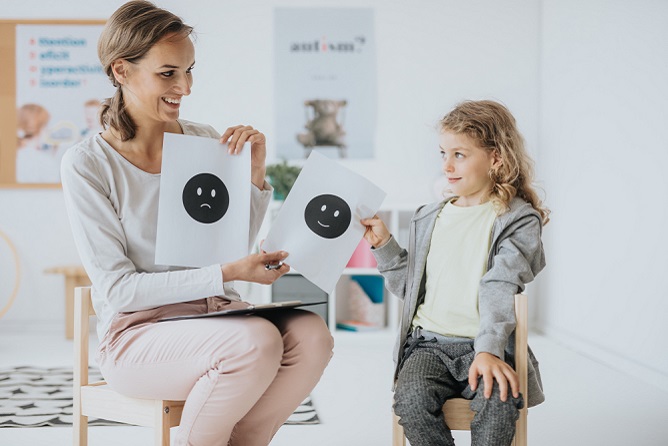
By implementing targeted strategies, families can witness significant progress in their child’s ability to express needs, emotions, and thoughts. Let’s explore the key ABA strategies that make a difference.
- Functional Communication Training (FCT):
Functional Communication Training is a pivotal approach in ABA. It teaches non-verbal children to replace challenging behaviors with appropriate communication methods, such as using gestures or picture exchange systems. Through consistent practice, children begin to understand that communication is a powerful tool to meet their needs. This method is commonly employed in behavior therapy in Miami, Florida.
- Picture Exchange Communication System (PECS):
PECS is an effective strategy for non-verbal children. It involves exchanging pictures to communicate wants and needs, helping children build a foundation for language development. This method is particularly beneficial for children receiving BCBA therapy in Florida, as it fosters independence and reduces frustration.
- Reinforcement and Prompting:
Positive reinforcement encourages non-verbal children to use communication tools consistently. Combining reinforcement with prompting ensures that children gradually learn to communicate independently. Professionals offering RBT therapy in Florida often use this technique to enhance a child’s ability to express themselves.
- Routine-Based Interventions:
Integrating communication strategies into daily routines ensures consistency and reinforces learning. Routine-based interventions are a staple in child developmental services, allowing children to practice communication in real-life scenarios, making it more meaningful and effective.
These strategies, when applied by skilled behavior therapists, can transform the way non-verbal children interact with the world around them. To explore how these approaches can benefit your child, contact Little Blue Bees Behavior Therapy today to learn more about our specialized services.



Leave a Reply